



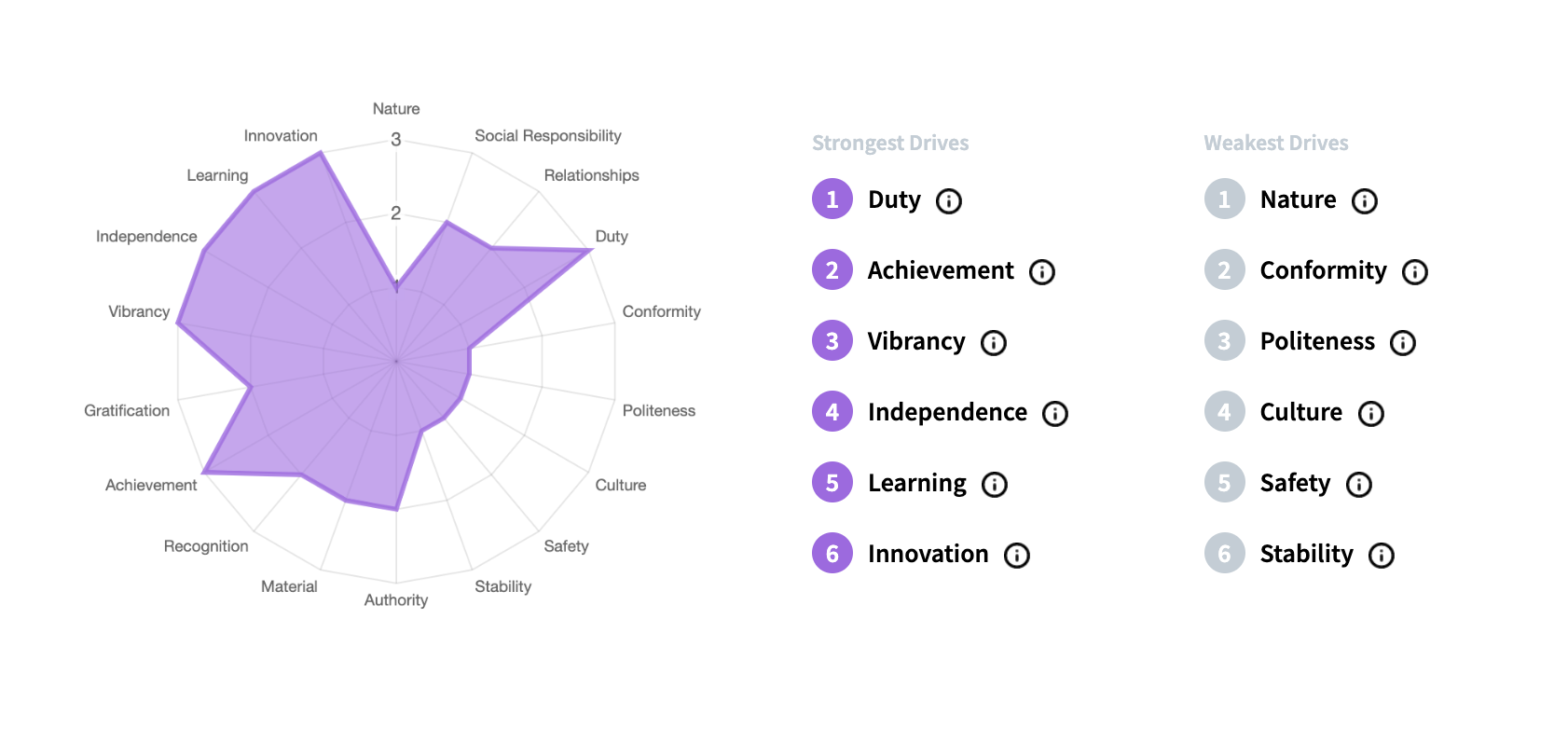
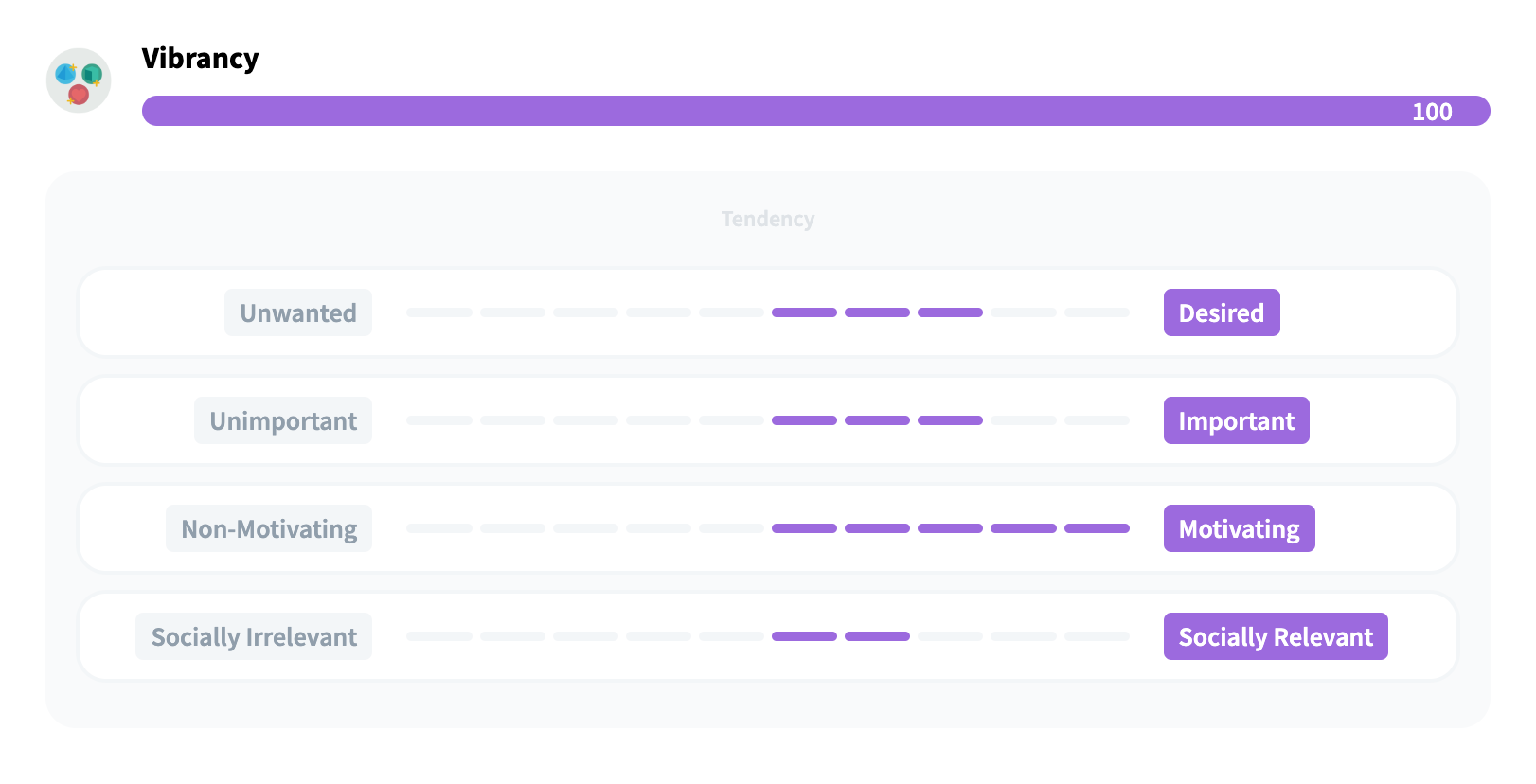

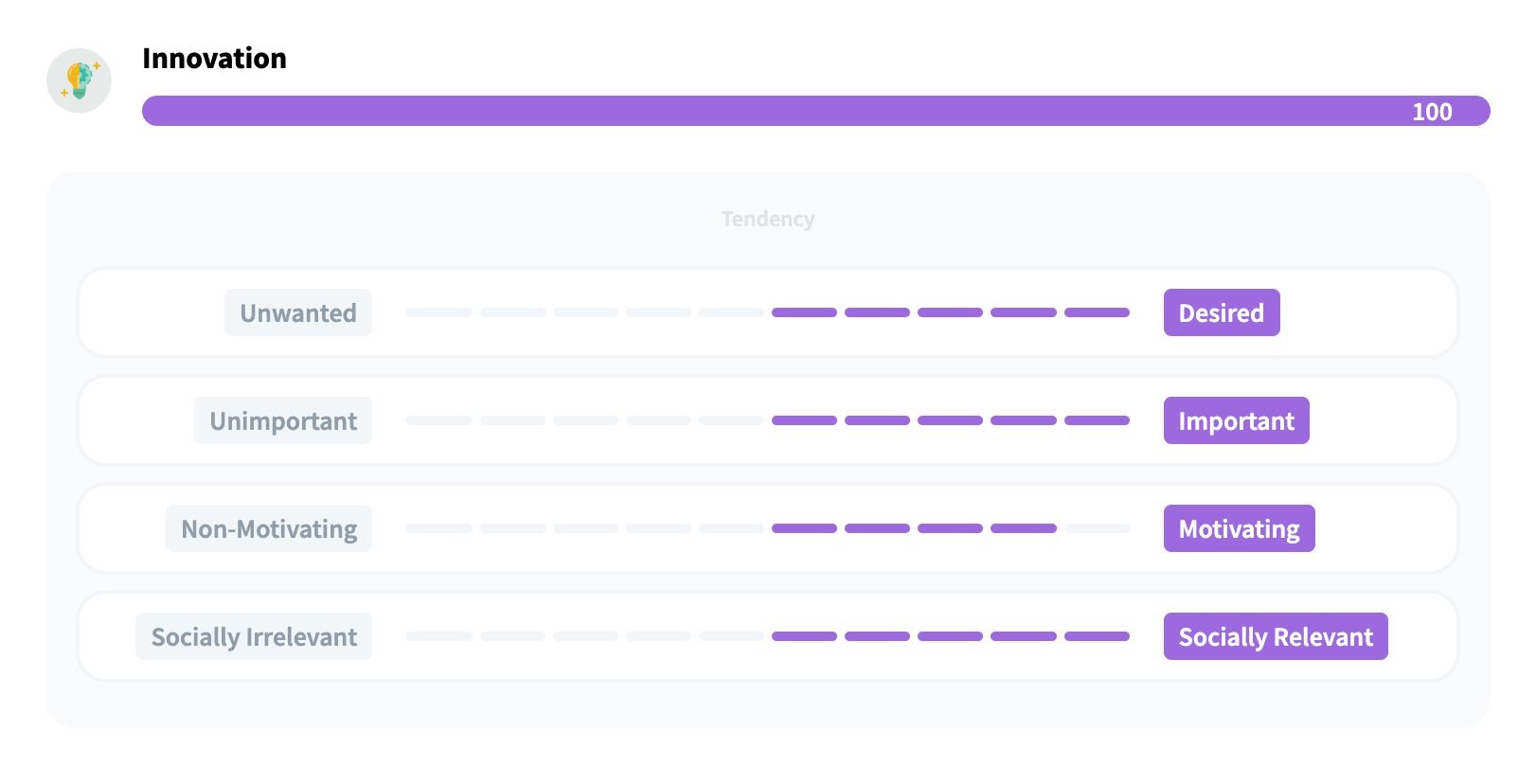
Of the things that John considers important in a career, his dominant drive for Vibrancy, Learning, and Innovation are fulfilled in his position as product manager. His visible enthusiasm is due to the fact that his job offers opportunities for change and new experience, developing his capabilities, and creating new things — all things that John finds to be highly motivating.
John’s other values are fulfilled in his workplace culture and his own work style. His company encourages self-management and freedom in pacing, fulfilling his desire for Independence. John also sets high standards for himself and often takes extra responsibilities in the team, consistent with his values for Achievement and Duty.
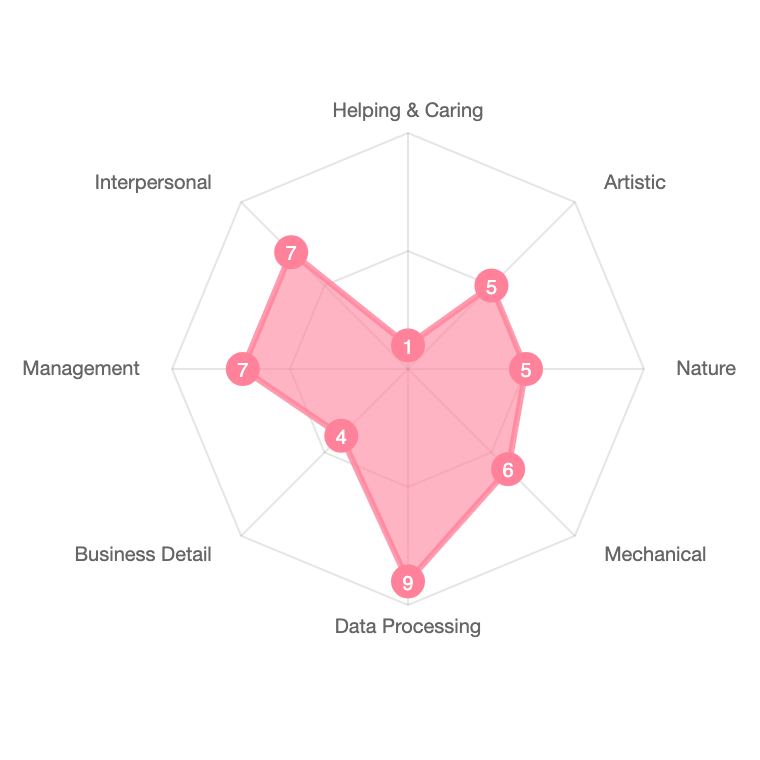
John’s interests mostly fit the profile of the ideal product manager. His most dominant interest is Data Processing where he both highly enjoys and is very confident in interpreting data and numbers using complex systems. This explains why he especially enjoys the research part of product development. His interest in Management is also consistent with the fact that he keeps his team’s work and progress very organized and well-tracked.
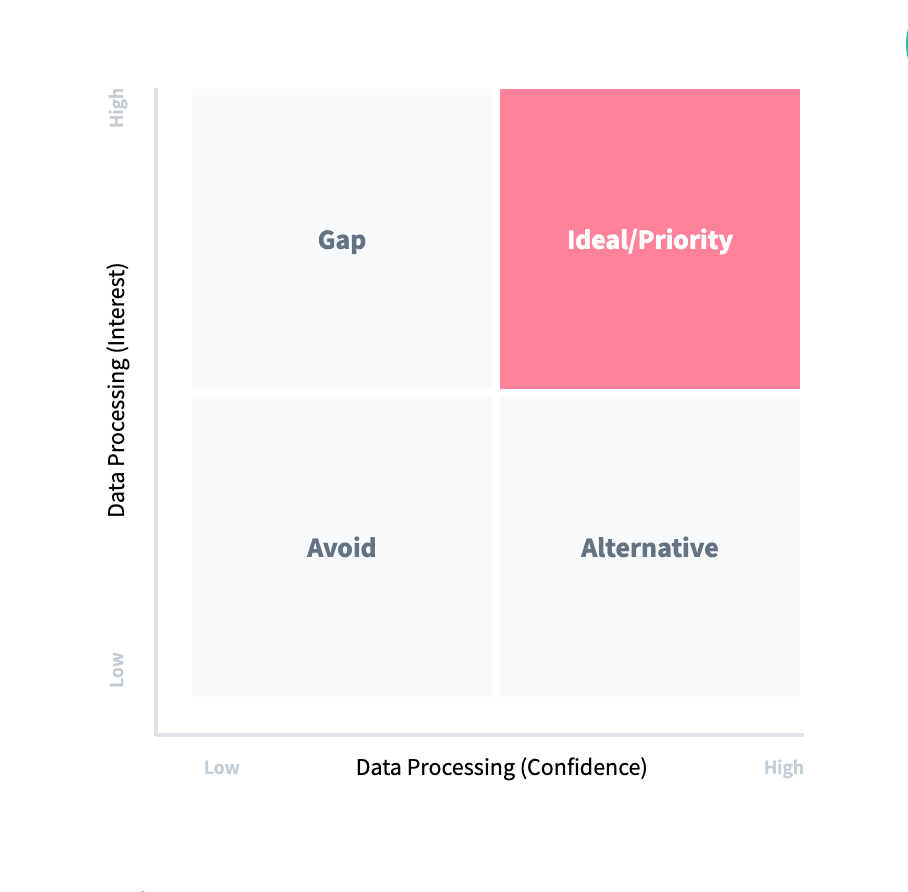
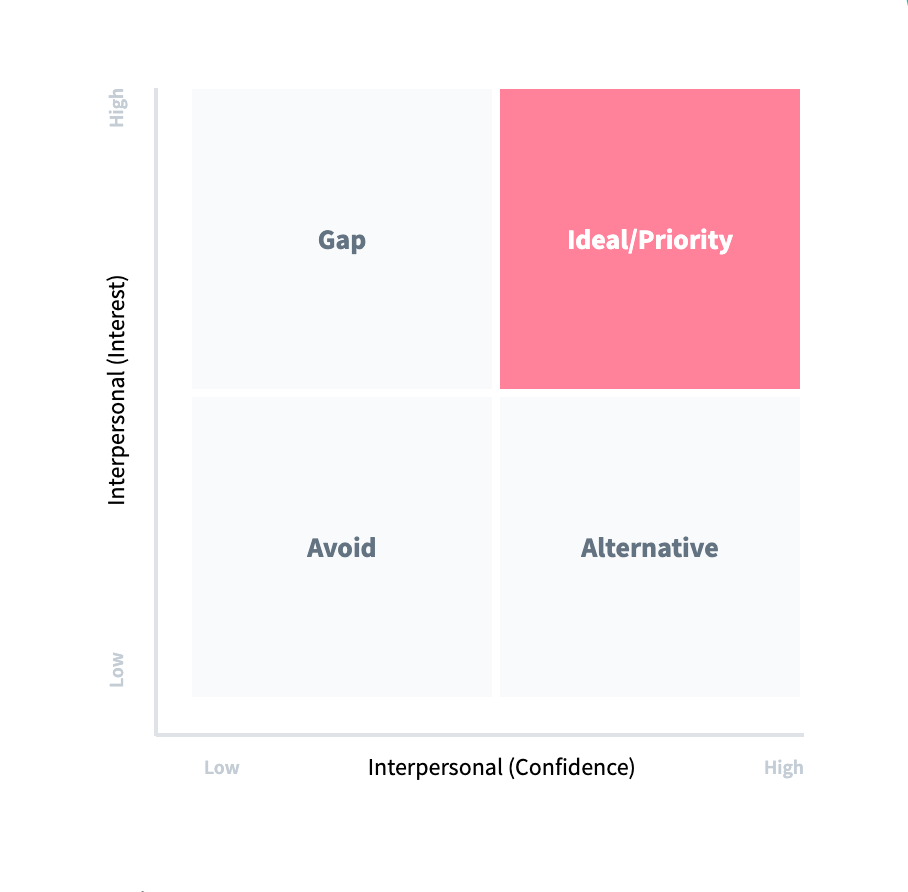
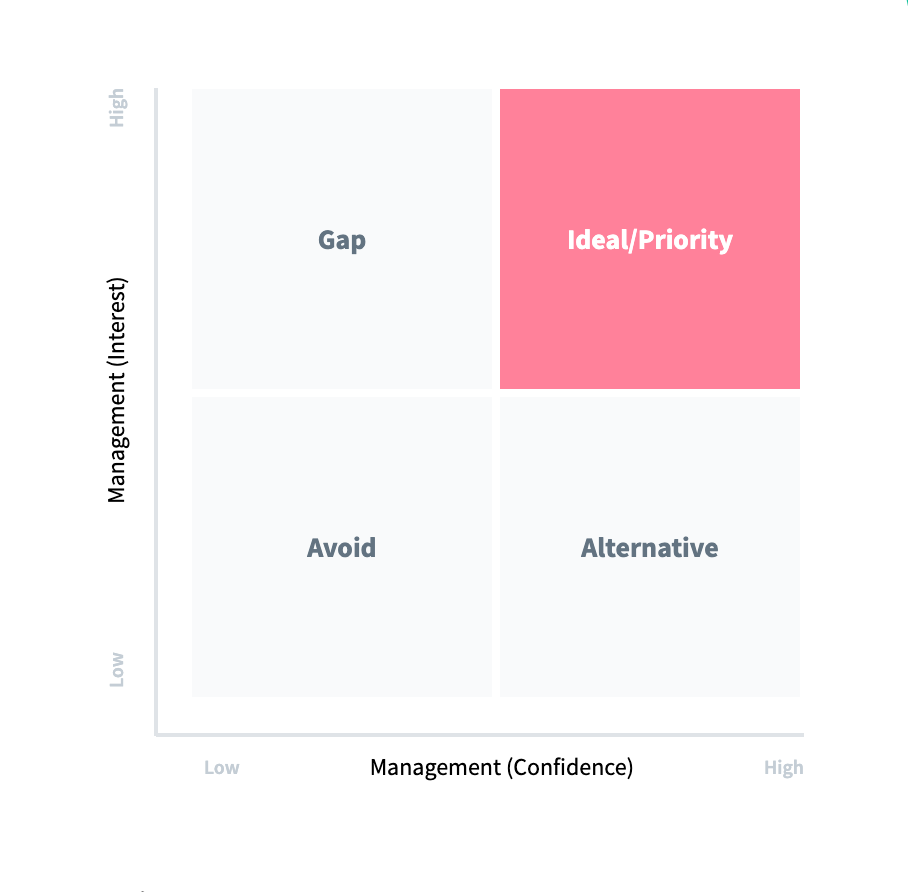
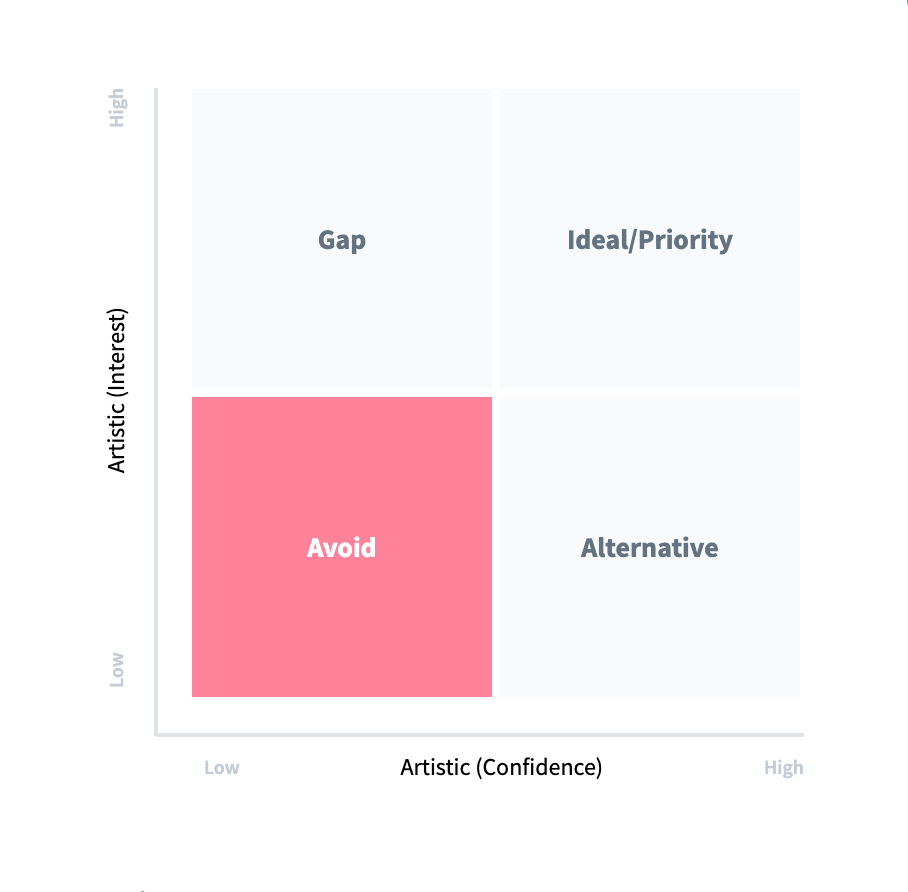
In John’s case, his interest in Interpersonal is only for managing and influencing others — consistent with his role as a leader — as he enjoys less social interaction and relationship-building. This is also reflected in his Leader Focus and Leader Agility results.
From these results, it’s concluded that John enjoys working with Things, guided by Data and concrete information, and doing Complex tasks that offer challenge and difficulty. This is consistent with his job description as a product manager.
The only thing John lacks here is an Artistic interest which he neither enjoys nor feels confident in. John realizes this, which is why he relies on his more artistically oriented team members to design UI and other visual aspects of their software.
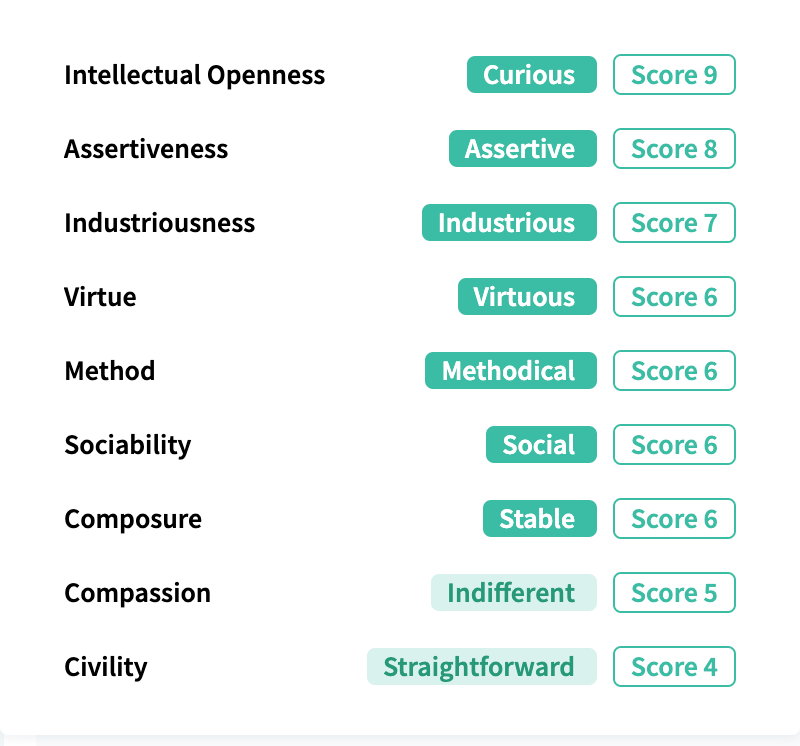
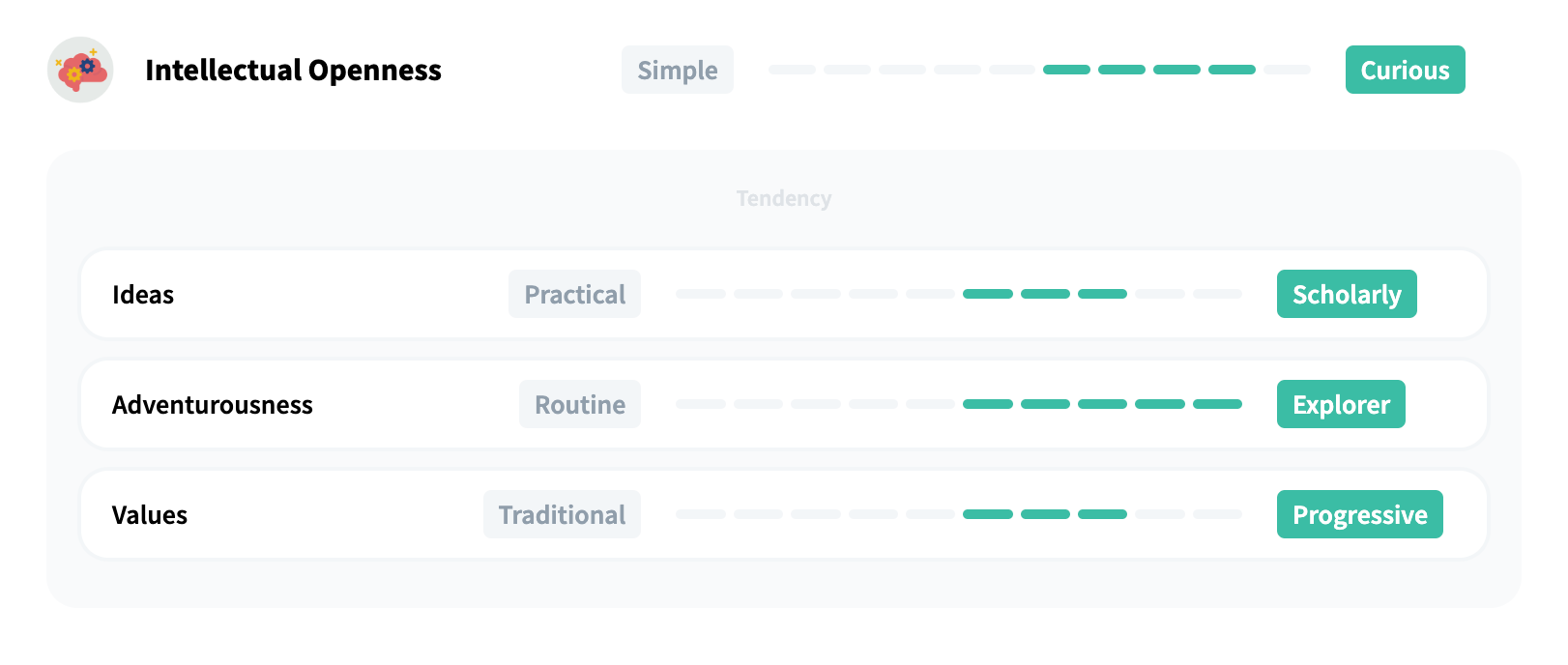
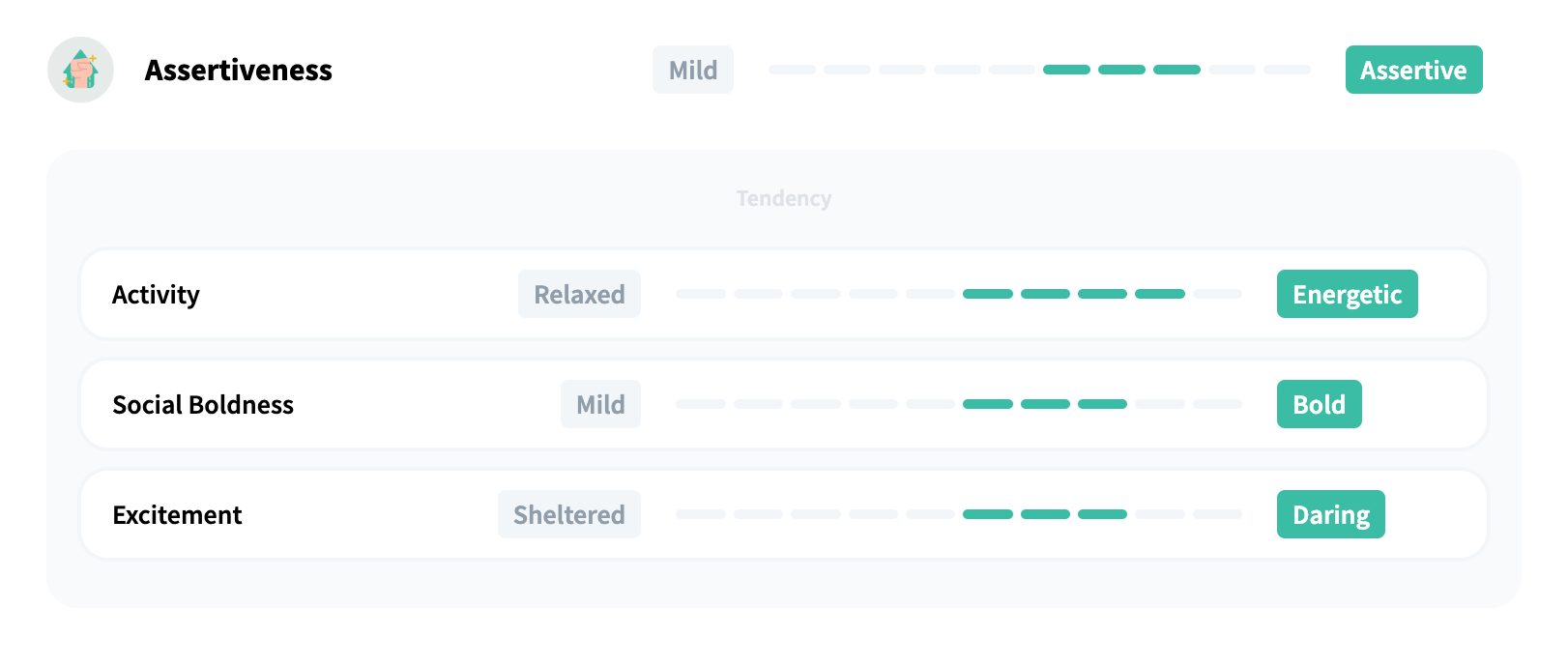
John ticks almost all of the boxes. His most dominant aspects are Intellectual Openness and Assertiveness, meaning he openly questions things and confidently expresses his ideas. This is important for product managers who must consistently give and receive criticism to produce the best product ideas.
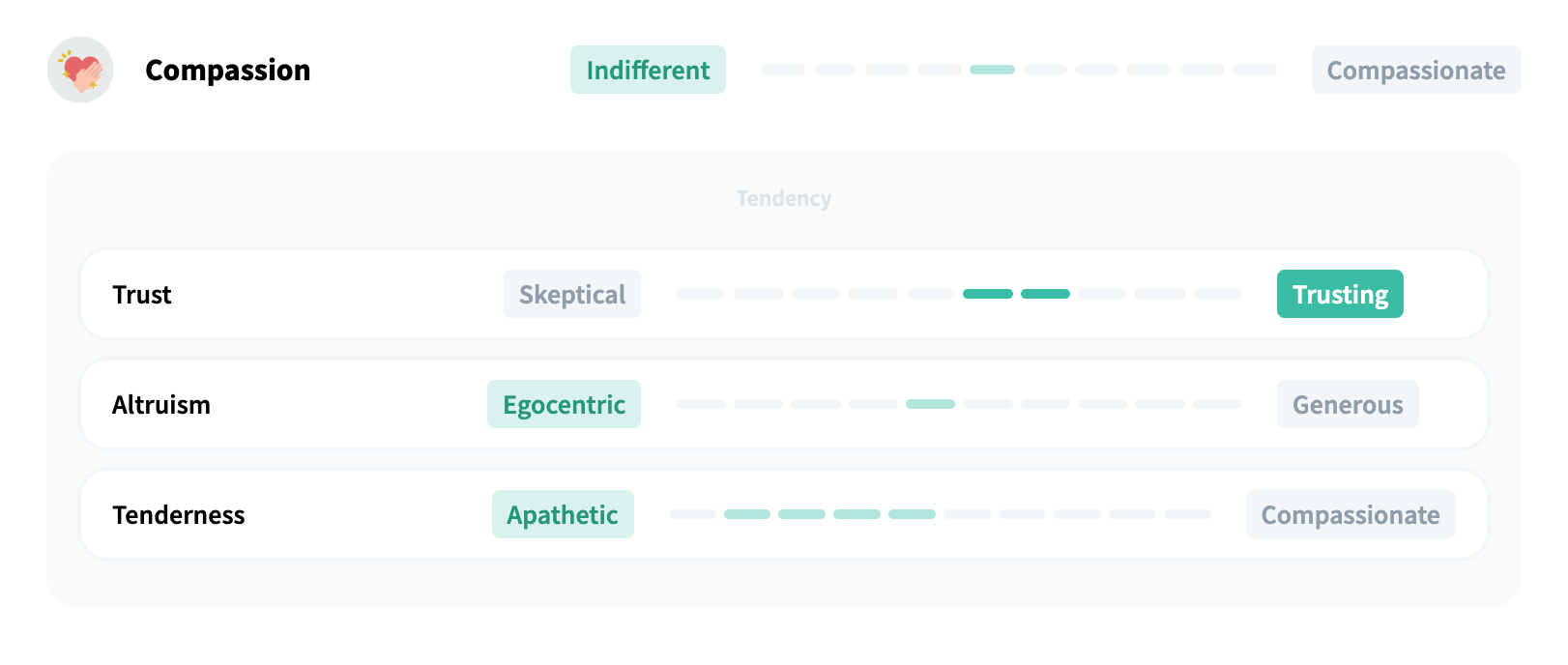
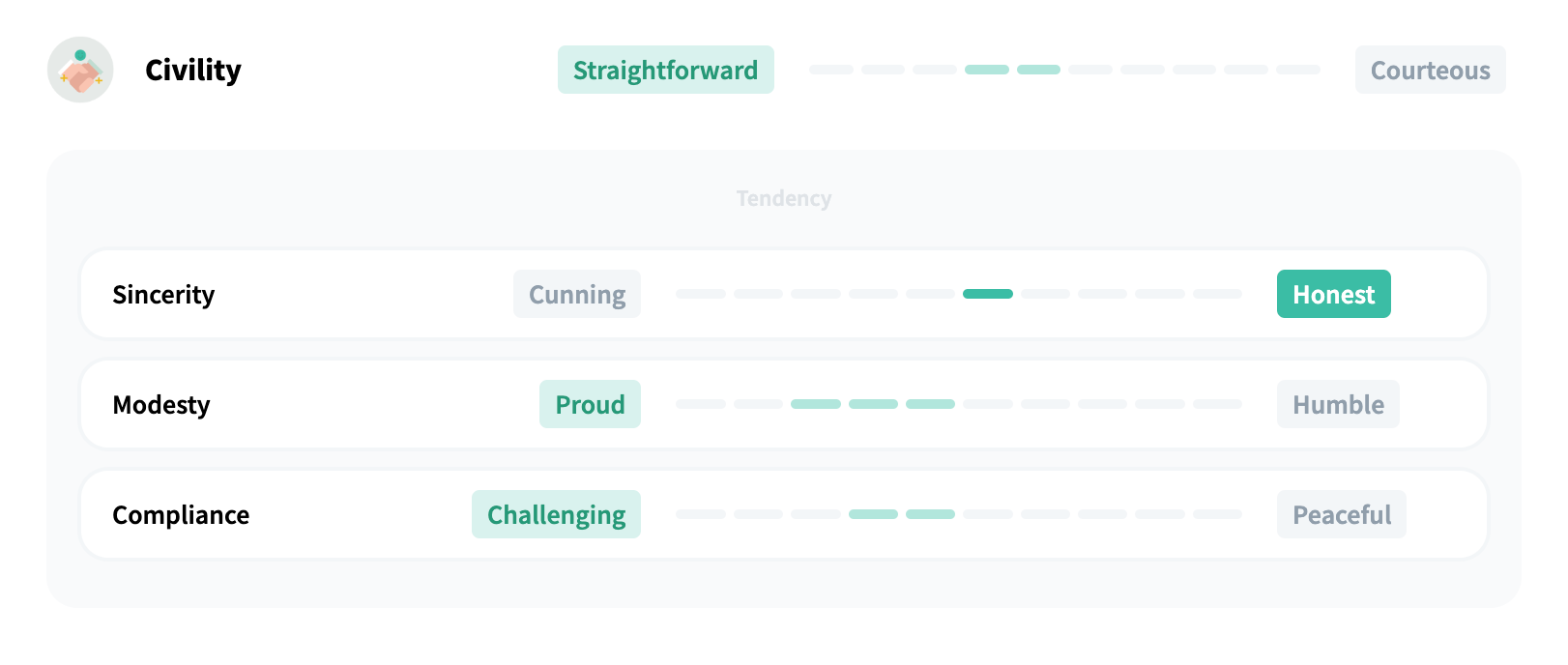
However, his low Compassion and Civility suggests John tends to make decisions only from his own perspective. Product managers need to have these aspects in order to successfully empathize with the users’ needs.
This combination of personality aspects might suggest the possibility of Eccentric and Rebellious behaviors in the Risk Factors, something John’s superiors should look out for.
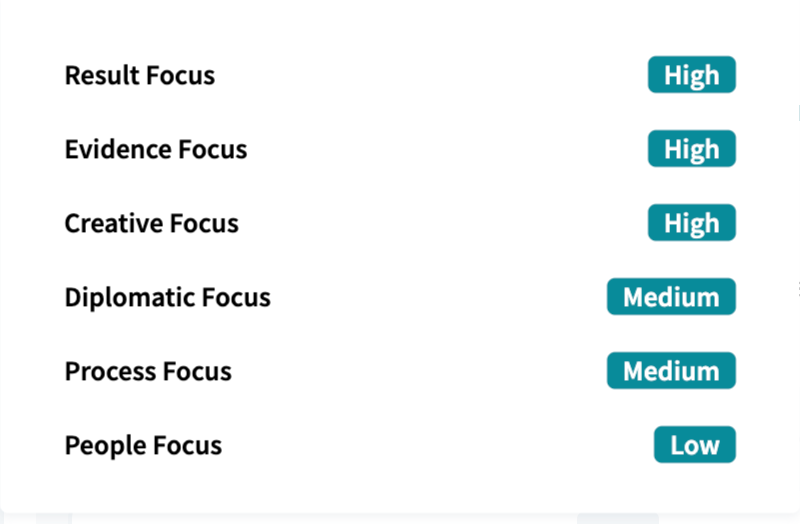
Product managers need to have Creative Focus to create innovative ideas necessary to drive product development ahead of competitors, and Evidence Focus to base those creative decisions on research and user data.
John has the right focus and this is reflected in his leadership style. He constantly proposes new features and enjoys discussing ideas that his team expresses. Though he is passionate about his ideas, John ultimately decides which features are worth working on based on his team’s market research data, even if it means scrapping some ideas.
On the other hand, John’s lower results in People Focus and Diplomatic Focus explain his tendency to push his subordinates towards demanding targets and give polite yet point blank feedback on their work. He is known to prioritize work and pays less attention to team-building activities.
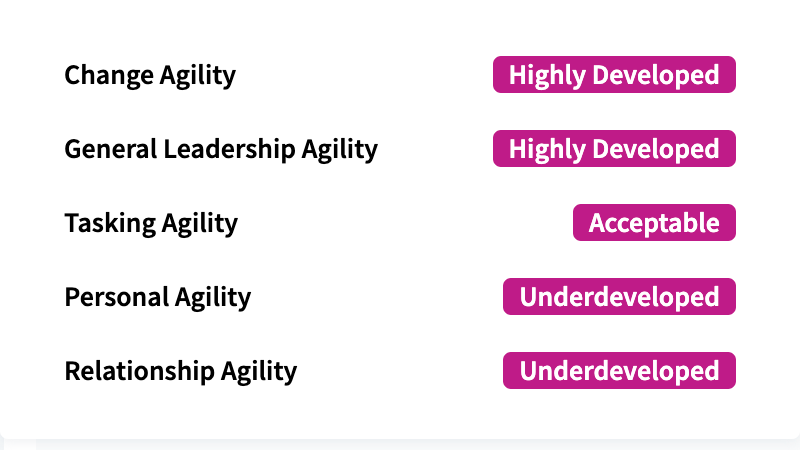
John scores well in most parts of Leader Agility which highlights his general capability in putting people together, driving them towards a goal, and dealing with change as a leader.
On the other hand, consistent with his lower priorities on People Focus and Diplomatic Focus, John shows low Relationship Agility. He may face difficulties in forming strong bonds within the team, especially when there is a new member from a different work culture.
Additionally, his low Personal Agility suggests that he may not always follow through with his words — according to his other results this would not be regarding work itself, but with relationship-related activities.
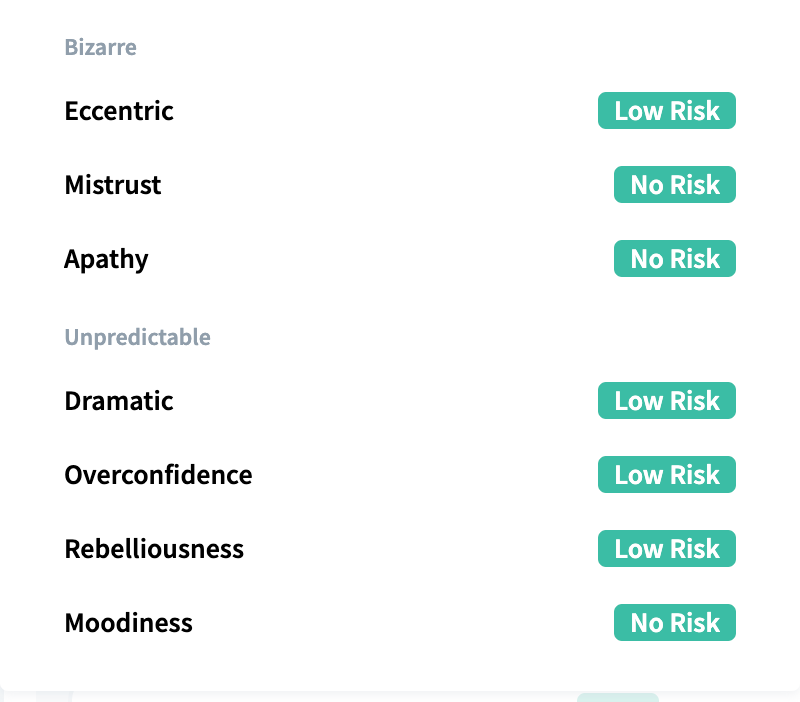
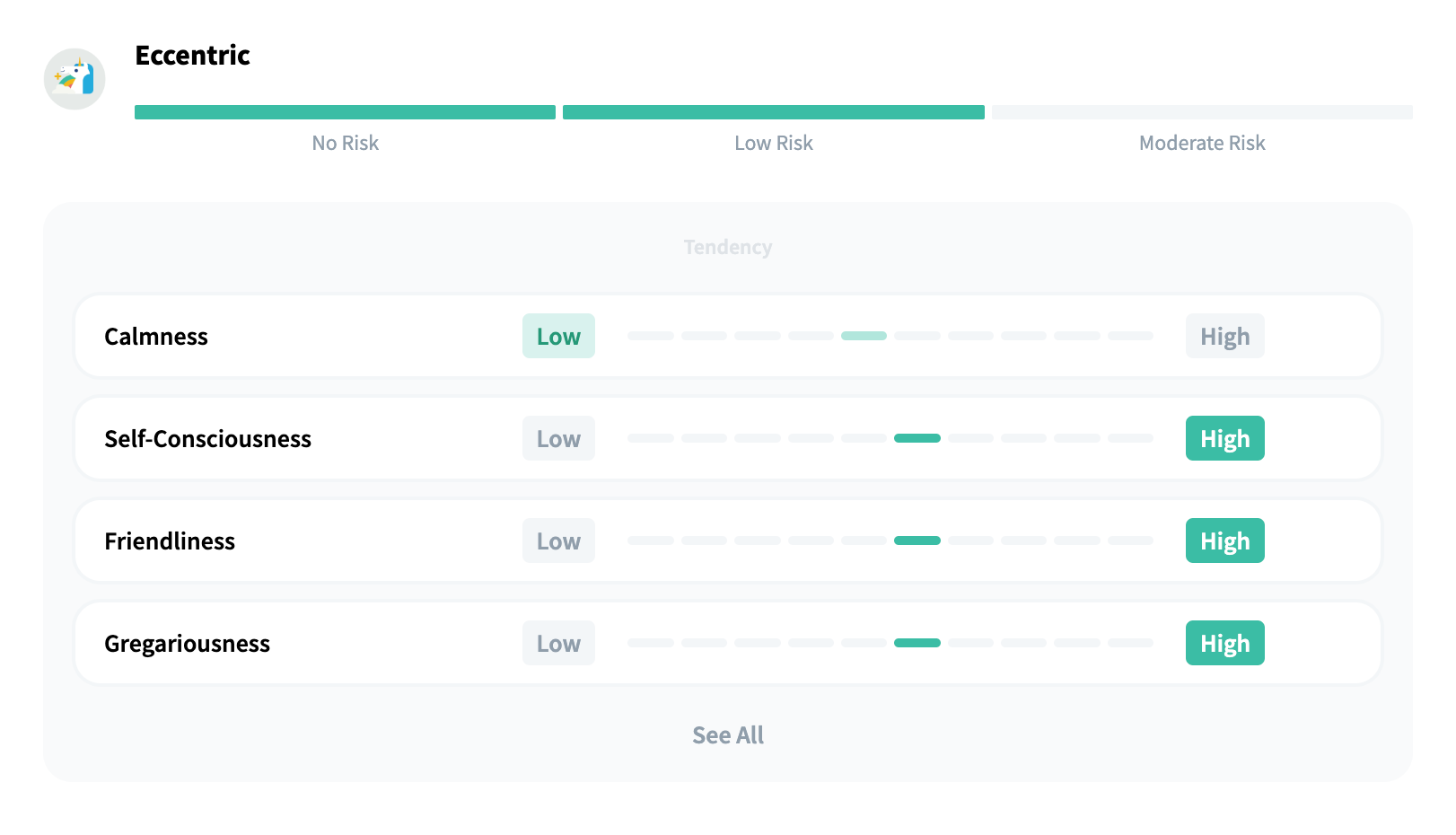
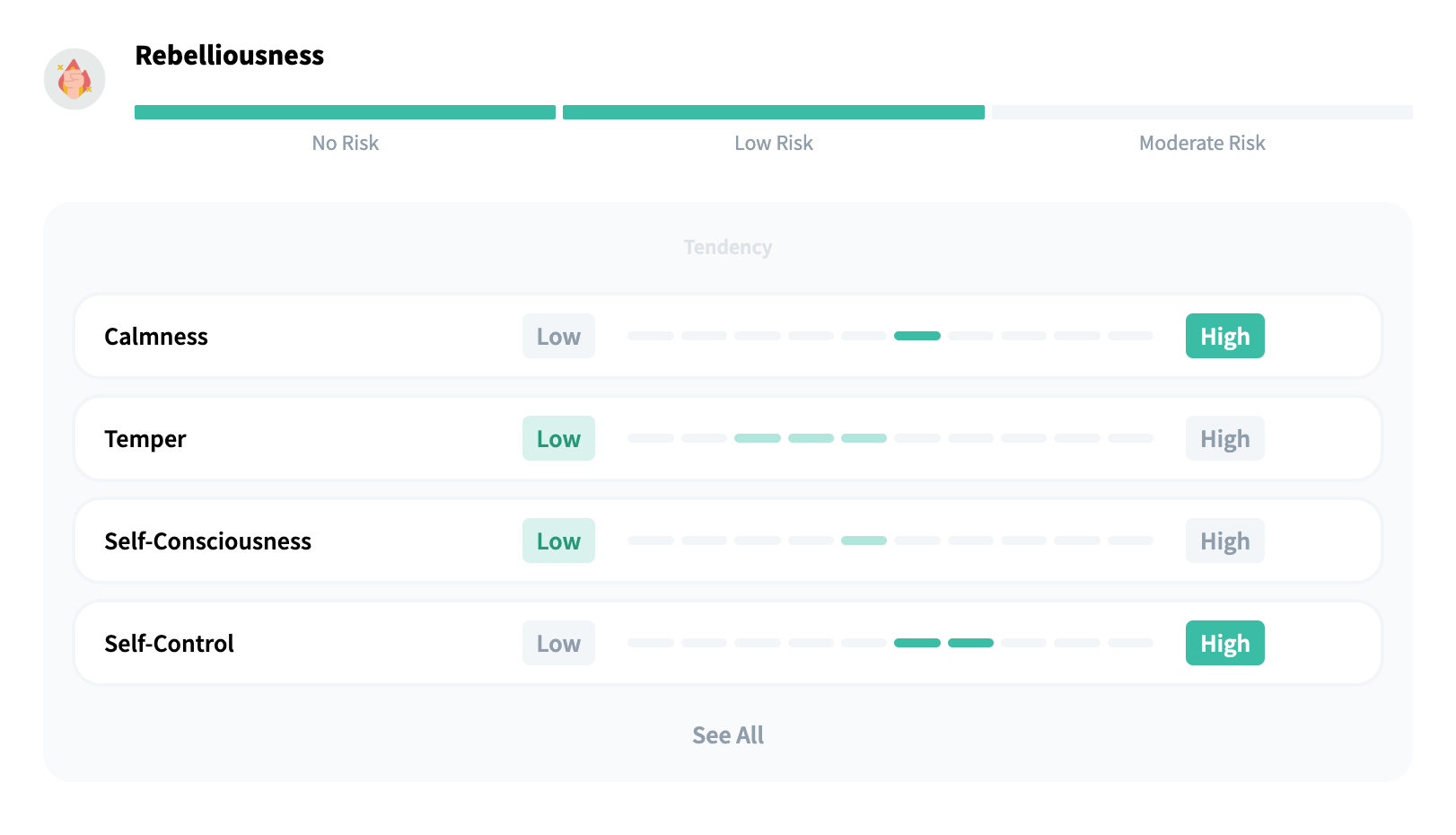
Product managers ideally should have no behavioral risks but just a little bit of Eccentric. John possesses this quirk in just the right amount, which is very valuable in his job to think outside the box and come up with novel product ideas. He can keep his Eccentric tendency grounded in reality thanks to his high Evidence Focus, making it useful instead of disruptive.
As suggested earlier, John indeed shows his high risk of Rebelliousness. This could pose problems when he needs to comply with an authority figure. John’s high Overconfidence also makes him overestimate his own or his team’s capabilities when questioned.

John has realized 3 of the strengths required of a product manager: Creativity, Improving, and Intellectual Stimulation. These make him excel in generating new ideas for innovation, identifying what needs to be improved with the current product, and encouraging his team to be active in design discussions to enrich the final prototype idea. This is consistent with the behaviors John shows at work as indicated by his Creative Focus.
His other realized strengths build on John’s effectiveness as product manager and team leader. His strength in Competing drives him to make a better product than the competitors. His Persuading lets him convince his superiors and the other divisions to go with his ideas for new features or improvements. John is also good at Developing Others and Delegating, resulting in the significant improvement of his subordinates’ skills and decision-making.
However, John does possess weaknesses critical in the role of product manager. Due to his weak Extrapolating, John can rarely predict likely changes in the trend for his product’s market, mostly fixated on the present based on raw data. This is understood as a side effect of his Evidence Focus. His weak Common Sense also means the solutions he comes up with are too theoretical rather than practical for a product, especially given his background as an academic.
Uniquely, John shows stellar performance as product manager in spite of the lack of some critical strengths. This is made possible by his strengths in Developing Others and Intellectual Stimulation, enabling him to develop and grow his team’s strengths in Extrapolating and Common Sense to cover his weaknesses and hence deliver a high-quality product.
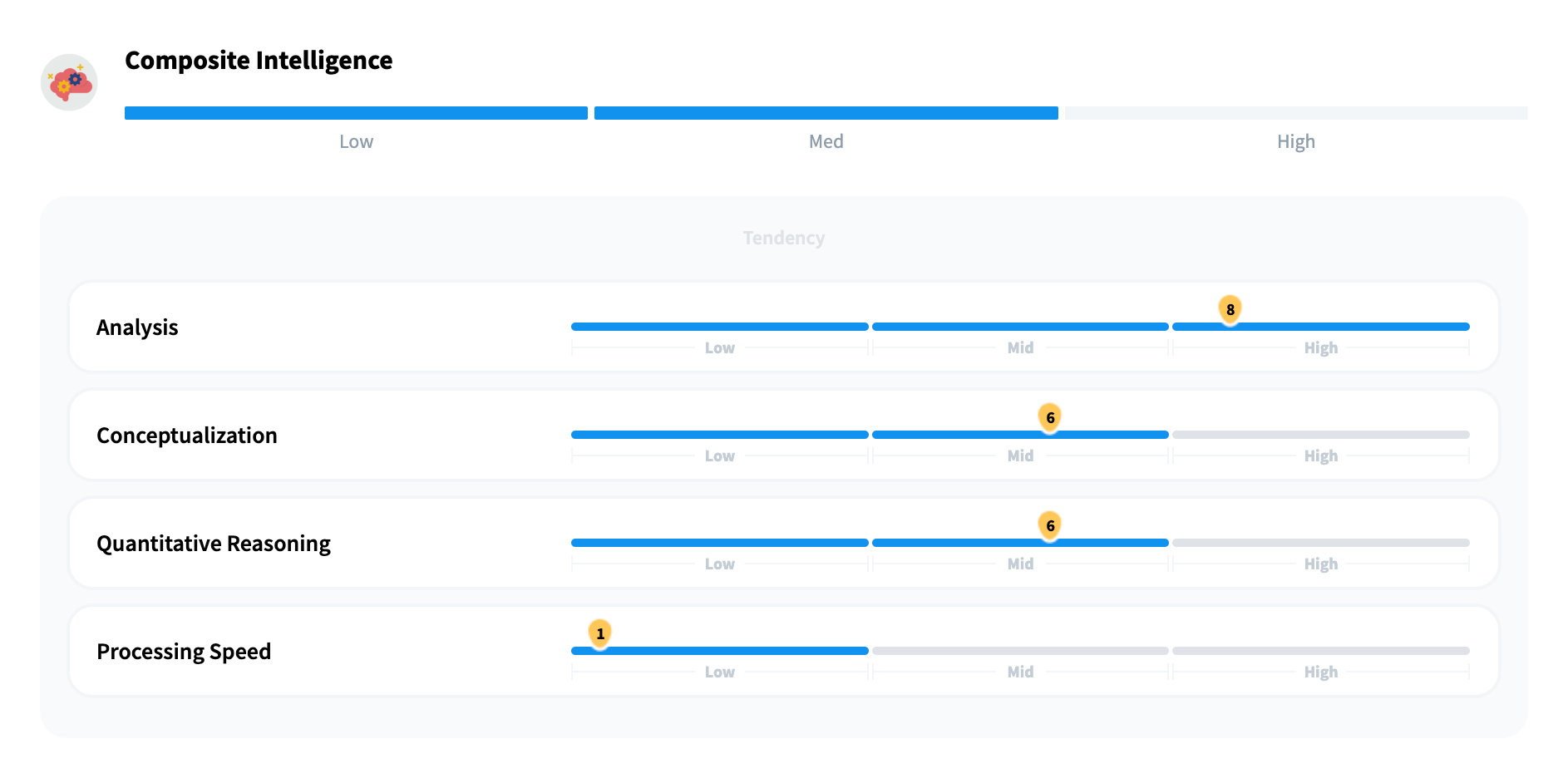
John’s intelligence profile mostly fits the intellectual demands of a product manager. His ability in reading underlying patterns makes him able to learn quickly and solve problems he’s never faced before. This is reflected in his skill in making sense of the cause and effect from implicit user feedback data, and is proof that his Creative Focus and strength in Creativity is backed up by sufficient intellectual capacity. On the other hand, this serves as a stopgap for his weak Extrapolation by enabling him to adapt quickly to, if not predict, changes in his product’s market.
John is also strong in interpreting explicit information, namely quantitative data from his product and market research, making his focus groups and trial-and-error efforts more productive. However, his low Processing Speed means he needs more time to make decisions, consistent with his weakness in Deciding. From these results, it is concluded that John is a better leader when he can focus on the big picture, just as how a product manager handles the grand product strategy while his subordinates (designers and developers) focus on executing the details.
John Smith is a good fit for his current role. He possesses the right qualities, motivations, and capacities to become an effective leader and product manager. He proactively addresses his shortcomings by relying on the strengths of his team. John’s development program should be directed towards a people-centric and relationship focus, both to improve cohesion within the team and relatability with external users of the product.
right place today.

